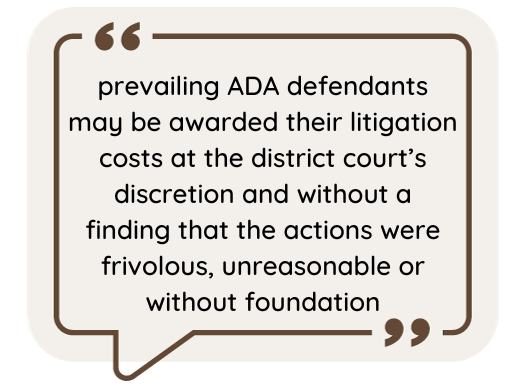If you own a business in California, chances are you’ve heard about serial ADA litigants. This isn’t a coincidence. California is widely considered ground zero for serial ADA litigation. But why here? And what can you do to protect your business?
California’s Laws Make ADA Lawsuits More Attractive to Plaintiffs
The Americans with Disabilities Act (ADA) allows for injunctive relief, which means a court can order you to fix violations, but does not award plaintiffs damages. California law changes that. Under the Unruh Civil Rights Act and the Disabled Persons Act, plaintiffs can recover statutory damages of $4,000 per violation, per visit, plus attorney’s fees. California also does not have a blanket pre-suit notice requirement. Lawsuits can be and frequently are filed immediately, with no warning.
 ADA Compliance and Defense Blog
ADA Compliance and Defense Blog


